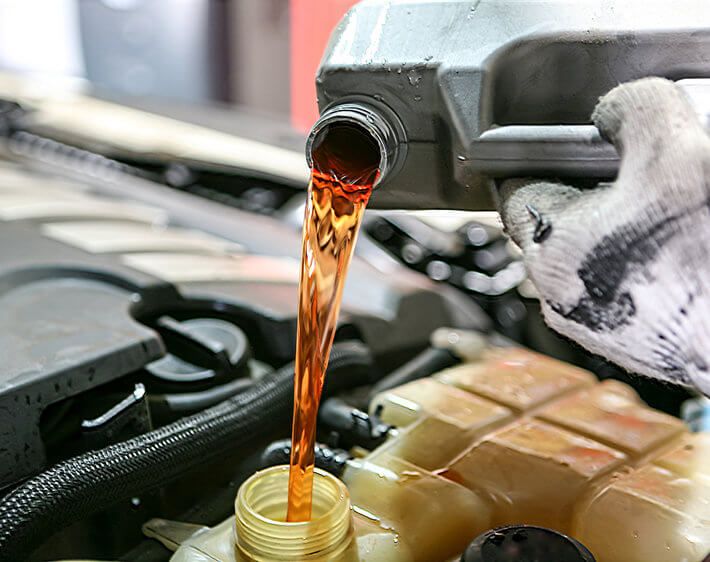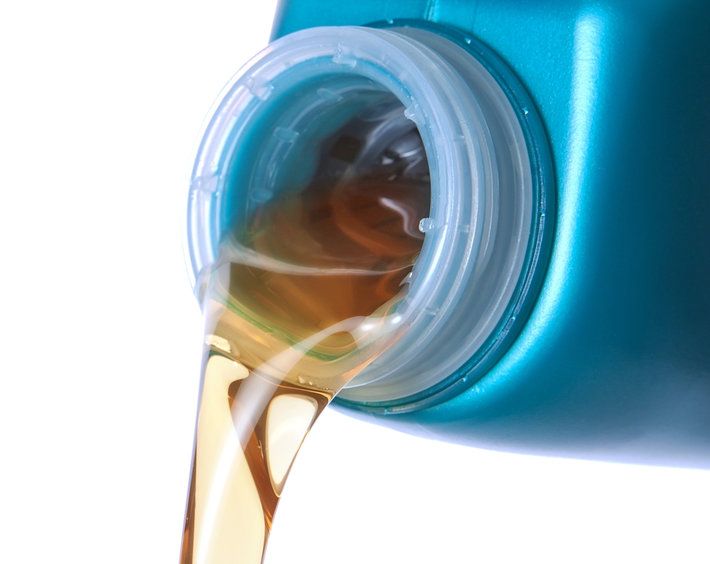It sounds like the plot to a summer blockbuster movie. A destructive force grows undetected, lurking just out of sight. Then it attacks, causing extensive—and expensive—damage.
This isn’t a movie, though. It’s what’s happening in car engines coast-to-coast. The destructive force? Engine sludge. That’s the name given to motor oil that breaks down, thickens, and gathers contaminates. This “goop” infects your engine’s components and can cause overheating. In worst case scenarios, it can destroy the engine. Check out our "hero game plan" to defeat this bad guy, prevent engine sludge, and save your car!
Be street smart. Excessive idling and short commutes (fewer than 10 miles) that are typical of city driving can encourage sludge buildup, as these conditions can prevent your engine from reaching its ideal operating temperature. As a result, the motor oil does not flow properly and over time becomes “sludge.”
Take action: Pay attention to the manufacturer's suggested oil change frequency. Your owner’s manual may even cite city driving as a reason to change the oil every 3,000 miles instead of every 5,000 miles.
Conduct a thorough investigation. Some automobile makes and models manufactured prior to 2000 have been known to be more susceptible to engine sludge than others.
Take action: If you're looking to buy a used car, even one that was manufactured post-2000, make sure you’re provided with the maintenance and oil change history. Compare that data to the manufacturer's maintenance requirements and take some time to research the make and model to avoid investing in one with a sludgy reputation.
Watch out for troublemakers. The wrong fuel and/or oil can create all sorts of problems for your car’s engine, including sludge, which is one more reason to think twice before changing your own oil.
In a study conducted by AAA and reported by CNN, “off-brand gasoline can cause ‘19 times more engine deposits’ than recognizable brands, which have more detergent in their mix. The problem can occur after just 4,000 miles of simulated driving.” With oil, it’s more about using the right type of oil for your vehicle: conventional, synthetic, synthetic blend, or high-mileage. Your owner’s manual can provide you with such information, as well as one of our friendly technicians.
Take action: Make sure you use the right fuel and motor oil for your engine, mileage, and vehicle type. If you're not sure where to look, consult your owner's manual or stop by your nearest Firestone Complete Auto Care. You may want to go with a motor oil that's designed to fight engine sludge and deposits, like Pennzoil!
Make your big play. Every hero needs a big finale! So what’s your big move when it comes to protecting your engine from sludge? Regular oil changes. Regular oil maintenance is a key factor in engine performance, longevity, and sludge prevention.
Take action: Stop by your nearest Firestone Complete Auto Care for a full-service oil change and talk to your technician about the benefits of Pennzoil motor oil. It's built to help prevent harmful sludge buildup and depending on your vehicle, could be the best motor oil for you.



